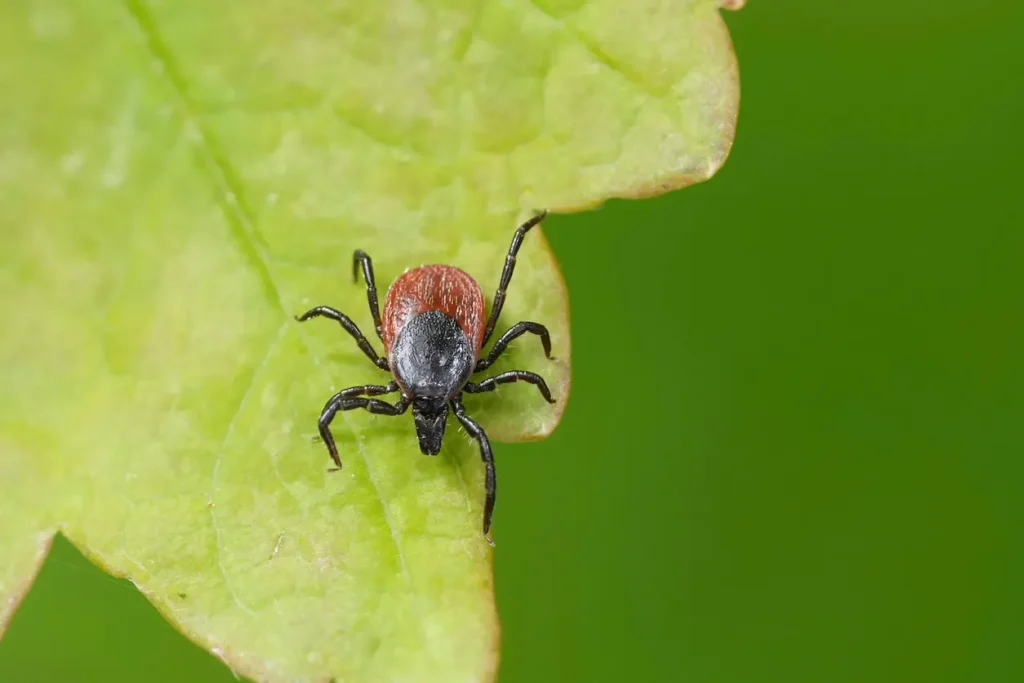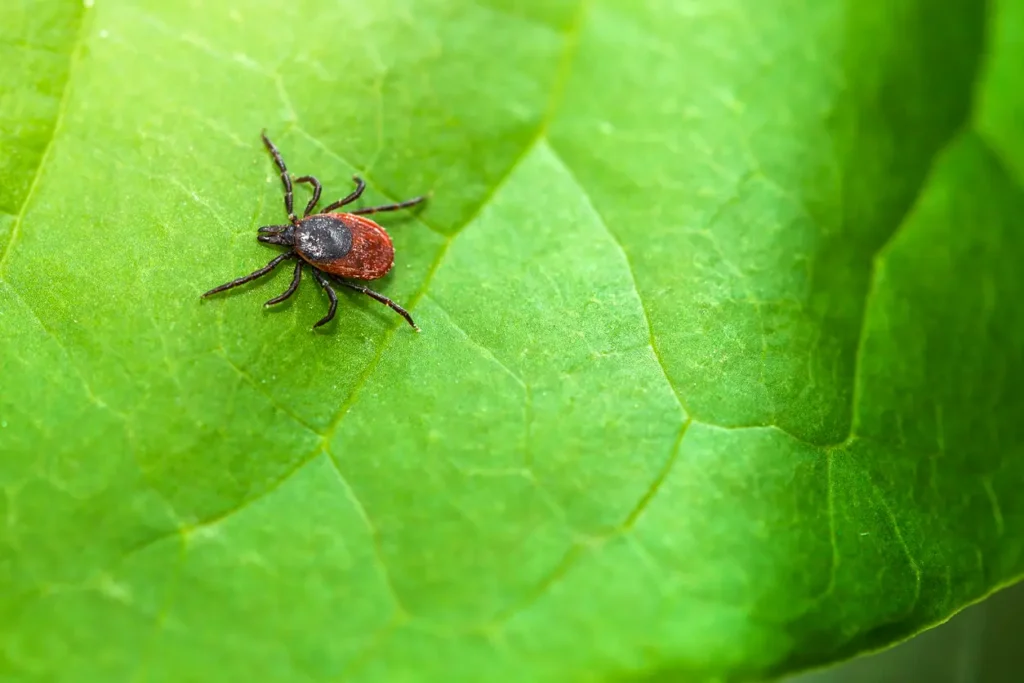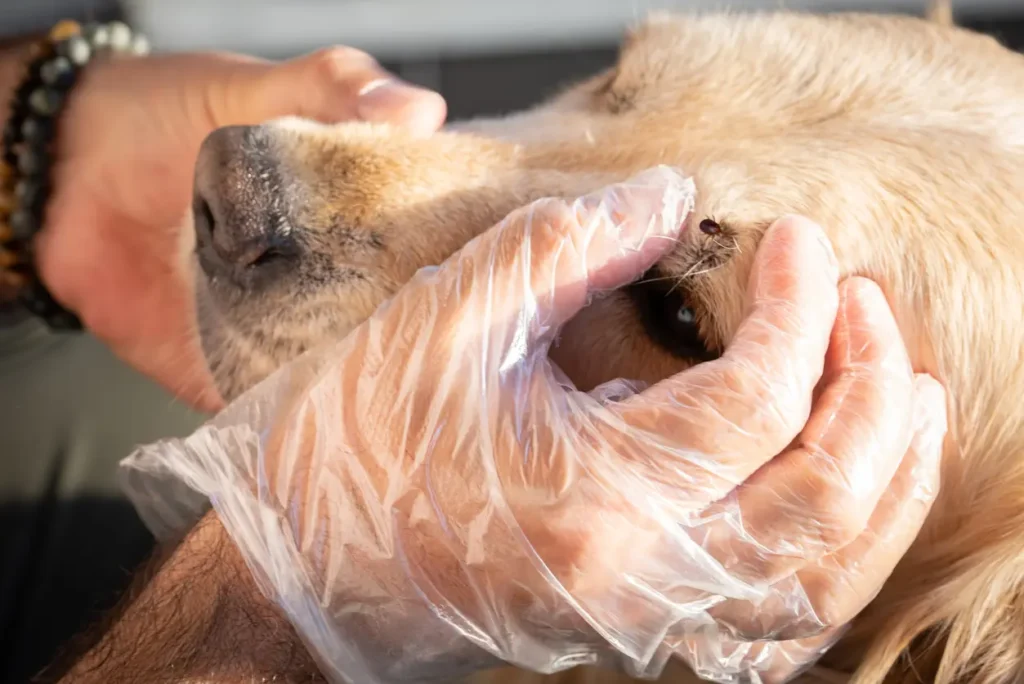
Tick Control: University, FL's Trusted Experts
Ticks are more than just a nuisance; they are a significant health risk for both humans and pets, especially in University, FL, where the warm, humid climate provides the perfect environment for these pests to thrive. Ticks are known carriers of dangerous diseases, including Lyme disease, Rocky Mountain spotted fever, and tick paralysis, making effective tick control essential for homeowners in University. With lush landscapes, outdoor recreational areas, and favorable weather, tick infestations can quickly get out of hand if not addressed early.
All U Need Pest Control has been serving the residents of University, FL, with professional and eco-friendly pest control services for over 20 years. Our tick control solutions are customized to meet the specific environmental challenges of the region. We take pride in delivering safe and effective treatments that protect your family, pets, and property. Our commitment to customer satisfaction and environmentally responsible practices makes us a leading choice for pest control in University.
If you're experiencing issues with ticks, call us today at 1 (888) 239-BUGS or contact us online to schedule a free consultation.
Our motto? "If they're not dead, we're not done!"
Pest Control Services in University, FL
- Ant Control
- Bed Bug Control
- Beetle Control
- Cockroach Control
- Flea Control
- Home General Pest Control
- Hornet Control
- Millipede Control
- Mosquito Control
- Pantry Pest Control
- Rat & Rodent Control
- Scorpion Control
- Silverfish Control
- Spider Control
- Stink Bug Control
- Termite Control
- Wasp Control
- Winter Control

Understanding Tick Behavior
Ticks are not insects but arachnids, related to spiders and scorpions. These small parasites feed on the blood of humans and animals, transmitting dangerous diseases in the process. The warm, moist climate in University, FL, provides ideal conditions for ticks to thrive year-round. Understanding tick behavior can help you protect your home and pets from their harmful effects.
The most common tick species found in University include:
- Black-legged tick
- American dog tick
- Brown dog tick
- Lone star tick
Ticks are most often found in shaded, moist areas, such as tall grass, shrubs, and wooded environments. These pests thrive in these areas, waiting for a passing host to latch onto. The brown dog tick is a particular concern in University as it can live both indoors and outdoors, often attaching itself to pets and finding a way into homes.
While ticks can be active year-round in University, certain species are more prevalent at different times of the year. For example, adult black-legged ticks are most active from September through May, while nymphs are more active between April and August. Nymphs are especially dangerous because of their small size, making them harder to detect while still being capable of transmitting diseases.
Here’s how to identify ticks:
- Fully grown ticks are similar in size to an apple seed, while their nymph form is comparable to a poppy seed. Males are generally smaller than females.
- Ticks inflate with blood when they feed, making them look much bigger.
- The tick’s body consists of a tiny head and a larger abdomen.
- Ticks have two pairs of front legs directed toward their heads and two pairs of back legs directed toward their abdomen.

Risks Associated With Ticks
Ticks in University, FL, can transmit several serious diseases that pose a significant risk to humans and pets. The following are some of the most common tick-borne illnesses you need to be aware of:
Lyme Disease
Lyme disease is caused by bacteria transmitted through the bite of infected ticks, particularly black-legged ticks. Early symptoms of Lyme disease include fever, headaches, fatigue, and a characteristic bull’s-eye-shaped rash. If left untreated, Lyme disease can result in more severe health issues, including joint pain, heart complications, and neurological problems. Early detection and antibiotic treatment are essential to prevent long-term effects.
Rocky Mountain Spotted Fever
Rocky Mountain spotted fever is a bacterial infection transmitted by several tick species, including the American dog tick. Symptoms include fever, headache, and a rash that can spread across the body. If not treated promptly, Rocky Mountain spotted fever can damage blood vessels and lead to severe complications or death. Early treatment with antibiotics is crucial to preventing serious health outcomes.
Tick Paralysis
Tick paralysis occurs when a tick injects a neurotoxin into its host, causing temporary paralysis. This condition primarily affects pets but can also impact humans. In some cases, tick paralysis can progress to respiratory failure if left untreated. Immediate removal of the tick usually reverses the symptoms, but prompt action is necessary.
Though not all tick bites result in illness, the risks are high enough that preventative measures should always be taken. In a tick-prone area like University, FL, it’s essential to remain vigilant and take steps to protect your family and pets. All U Need Pest Control provides comprehensive tick control solutions designed to keep your home and yard safe.

Signs of Tick Infestation
Detecting the signs of a tick infestation early can prevent a minor issue from becoming a major health hazard. Below are some common indicators that your property in University may be infested with ticks:
Bites
One of the most obvious signs of a tick infestation is the appearance of tick bites on humans or pets. Tick bites typically appear as small red or brown spots on the skin, and in some cases, they may become irritated or itchy. A larger, discolored patch of skin may also form around the bite site. While most tick bites are harmless, you should monitor for symptoms such as fever, fatigue, or headaches, which could indicate a tick-borne illness.
Using antibiotic ointments like Polysporin can help prevent infection from the bite itself. However, if symptoms of illness arise, seek medical attention immediately.
Ticks on Pets
Pets, especially dogs, are vulnerable to ticks. It’s important to regularly check your pets for ticks, focusing on areas like behind their ears, around their neck, and between their toes. If your pet frequently comes into contact with ticks, this may indicate an infestation in your yard or home. Ticks can cause significant health problems for pets, including tick paralysis, so early intervention is key.
If your pet is continually exposed to ticks, contact All U Need Pest Control to address the infestation and protect your pet from future harm.
Tick Eggs
Ticks lay their eggs in dark, moist areas like cracks in walls, under furniture, or in shaded spots outdoors. These eggs are tiny, about 2mm in size, and are reddish-brown in color. While tick eggs themselves are not harmful, preventing them from hatching is critical to stopping an infestation before it spreads. Sprinkling salt on tick eggs can help dry them out, but professional treatment may be needed to ensure complete eradication.
If you spot tick eggs in or around your property, it’s best to contact a pest control professional to eliminate them before they hatch.
Ticks in Your Yard
Ticks thrive in outdoor environments with tall grass, dense shrubs, and moist, shaded areas. University’s lush landscapes provide the perfect habitat for ticks to hide and breed. If you spot ticks in your yard or find them on your pets after spending time outdoors, it’s a sign that your yard may be infested. Without proper treatment, ticks can spread and even find their way inside your home.
All U Need Pest Control offers thorough inspections and effective treatments to rid your yard of ticks and prevent future infestations.

Effective Tick Treatment Methods
At All U Need Pest Control, we offer a range of effective methods to eliminate ticks from your property in University. After conducting a thorough inspection of your home and yard, we will develop a customized treatment plan based on your specific needs and environmental conditions.
Here are some of the treatment options we may use to control ticks:
Habitat Modification
Modifying your property to make it less hospitable to ticks is one of the most effective ways to reduce tick populations. By removing areas where ticks like to hide and breed, you can significantly decrease the chances of an infestation. Some common habitat modification techniques include:
- Seal off gaps to prevent ticks from entering your house
- Trim back shrubs, grass, and vegetation that ticks are attracted to
- Clear away firewood, rocks, and leaf piles to reduce hiding places for ticks
- Open shaded spaces to sunlight to dry up moisture and deter ticks
Chemical Treatments
In cases where habitat modification alone isn’t enough, chemical treatments can be highly effective. These treatments are typically applied around the perimeter of your yard, in flower beds, and in other areas where ticks are commonly found.
Bifenthrin and permethrin are common chemicals used in tick control. Our team applies these treatments using high-pressure sprayers to ensure that all key areas are covered, reducing the chances of future infestations.
Targeted Applications
For severe infestations, we may use targeted applications in specific areas where ticks are nesting or laying eggs. This method ensures that the infestation is addressed at its source, preventing it from spreading further.
While store-bought treatments can be harmful to pets or family members, All U Need Pest Control uses eco-friendly products that are safe for your loved ones while still being effective at eliminating ticks.
Education
At All U Need Pest Control, we believe that educating homeowners is an essential part of our service. We provide information on tick behavior, life cycles, and how to prevent ticks from returning. Additionally, we’ll offer practical advice on how to protect your pets and maintain your yard to keep ticks at bay.
Our comprehensive tick control process includes:
1. Inspection
We start by conducting a detailed inspection of your property to assess the extent of the infestation. This allows us to identify areas where ticks are most likely hiding and develop the most effective treatment plan.
2. Treatment
After the inspection, we apply the appropriate treatments to eliminate ticks from your home and yard. Our treatments focus on areas where ticks are likely to hide and breed, ensuring that the problem is dealt with thoroughly.
3. Maintenance
To prevent ticks from returning, we offer ongoing maintenance plans. Regular inspections and follow-up treatments will keep your yard tick-free, allowing you to enjoy your outdoor spaces without worry.

Pet-Safe and Eco-Friendly Solutions
At All U Need Pest Control, we are committed to protecting the safety of your family, pets, and the environment. That’s why we use eco-friendly solutions that effectively eliminate ticks without harming your loved ones or the surrounding ecosystem.
Earth-Friendly Treatments
Our earth-friendly treatments use natural ingredients to eliminate ticks without damaging the environment. These treatments are safe for your plants, soil, and wildlife, making them an excellent choice for homeowners in University who are conscious of their environmental impact.
Minimum-Risk Pesticides
Many conventional pest control companies use harmful pesticides that can trigger allergic reactions or have long-term health risks. At All U Need Pest Control, we use minimum-risk pesticides that are both safe and effective, giving you peace of mind while keeping your home tick-free.
IPM
Integrated Pest Management (IPM) is a sustainable approach to pest control that combines traditional methods with eco-friendly practices. Our use of IPM ensures that your home is protected from ticks in the long term, without negatively impacting the environment.

How to Prevent Ticks
In addition to professional treatments, there are several steps you can take to prevent ticks from infesting your yard and home in University. Here are some practical tips to help keep ticks at bay:
Change Your Landscaping
Ticks thrive in overgrown areas with tall grass, shrubs, and leaf litter. By regularly mowing your lawn, trimming bushes, and removing debris, you can reduce the chances of ticks establishing a habitat in your yard.
Invest in Tick Repellents for Pets
Pets are particularly vulnerable to ticks, so it’s important to invest in tick repellents. Look for products that contain ingredients like DEET, permethrin, or natural oils such as lemon eucalyptus to protect your pets from tick bites and reduce the risk of illness.
Spray Repellent on Your Clothes
When spending time outdoors, especially in wooded or grassy areas, apply tick repellent to your clothing. Many repellents are odorless and provide protection for several hours, making them an effective option for outdoor activities.
Wear the Right Clothing
Although it may be uncomfortable in University’s warm climate, wearing long sleeves and pants can help prevent tick bites. Ticks need direct skin contact to bite, so covering up with the right clothing can reduce your risk.
Check for Ticks After Outdoor Activities
After spending time outdoors, it’s essential to check your body for ticks, especially in areas like your scalp, behind your ears, and under your arms. Use a mirror to inspect hard-to-see places where ticks are likely to hide.
Avoid Areas That Might Contain Ticks
Avoiding tick-prone areas like tall grass, leaf piles, and wooded areas can help reduce your chances of coming into contact with ticks. Stick to well-maintained paths and avoid venturing into high-risk areas during peak tick season.

Choose All U Need Pest Control for Tick Control in University, FL
Ticks can carry dangerous diseases that put your family and pets at risk, making it essential to address an infestation quickly. At All U Need Pest Control, we offer comprehensive tick control services that will eliminate ticks from your property and prevent them from returning.
Since 2003, we’ve been helping homeowners in University protect their homes and yards from ticks and other pests. Our customized treatment plans, eco-friendly solutions, and commitment to customer satisfaction make us the top choice for tick control in the area.
Don’t let ticks take over your yard! Call us today at 1 (888) 239-BUGS or contact us online for a free estimate and professional pest control services.
Location Contact:
1517 S U.S. Hwy 41 Ruskin, FL 33570
Get Directions for 1517 S U.S. Hwy 41Ruskin, FL 33570 on Google Maps813-473-2954
Call All "U" Need Pest Control